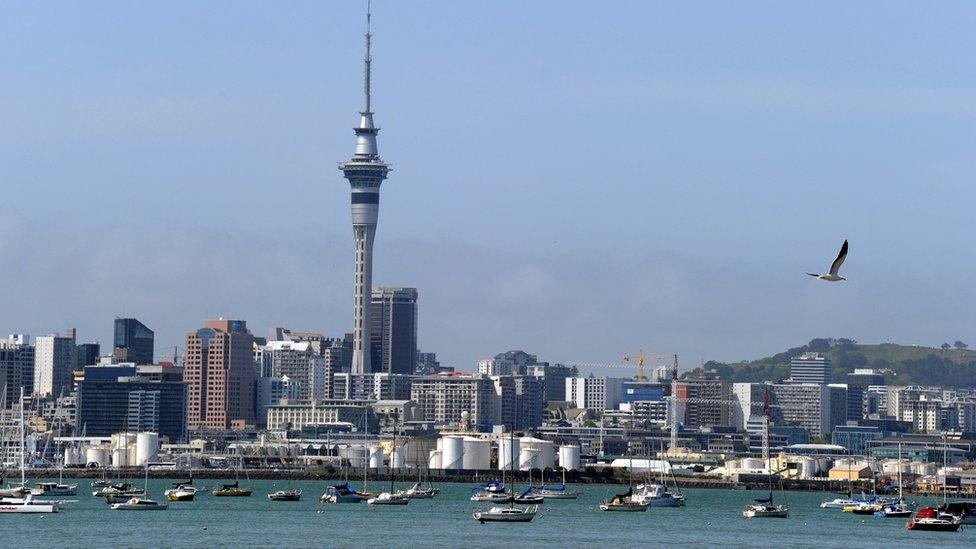New Zealand: Auckland aims to become trilingual city
- Published

Around one million of Auckland's 1.4m residents are monolingual
New Zealand's largest city, Auckland, has announced plans to encourage the entire population to speak English, Maori and a third language.
The initiative, launched by the council-controlled educational organisation COMET, aims to get all of Auckland's 1.4 million residents speaking the national language of Te Reo Maori, Radio New Zealand reports, external. Currently, only 2.3% of Aucklanders speak the language, the lowest rate in the country, while over 1m of the city's residents are monolingual - usually English, the radio says. Some 377,000 residents already have two languages as a result of the city's diverse ethnic mix, where 40% of Aucklanders were born overseas, but their languages tend to be overlooked in favour of English.
"We do still have this idea that monolingualism is normal and that you can get by in life with just English, but in the world we live in today, that's just not true," says COMET chief executive Susan Warren, adding that 160 languages are spoken in the city. Academic John McCaffery tells Radio New Zealand that increasing Te Reo Maori numbers is important for the nation: "The whole idea is to get Maori to be used and seen as our national language, as it should be."
However, one stumbling block to the plans is that Maori youth are increasingly using English to communicate rather than their own language. According to the New Zealand Herald newspaper, external, one study concludes that Te Reo Maori tends only to be used by younger people in formal settings, because the language lacks the "cool factor" and expressions for social media. The study's author, Dr Hinuwera Poutu of Massey University, says slang terms like "wekeneru" (awesome) and "pororanaka" (stupid) could be important to make the language more relevant, and therefore more likely to be used in everyday conversation and online. The most important factor, however, is to make the language "normal", she says. "To go to Pak'nSave and speak Te Reo, that's the long term goal."
Next story: Young Finns offered cheap flats at care home
Use #NewsfromElsewhere to stay up-to-date with our reports via Twitter, external.